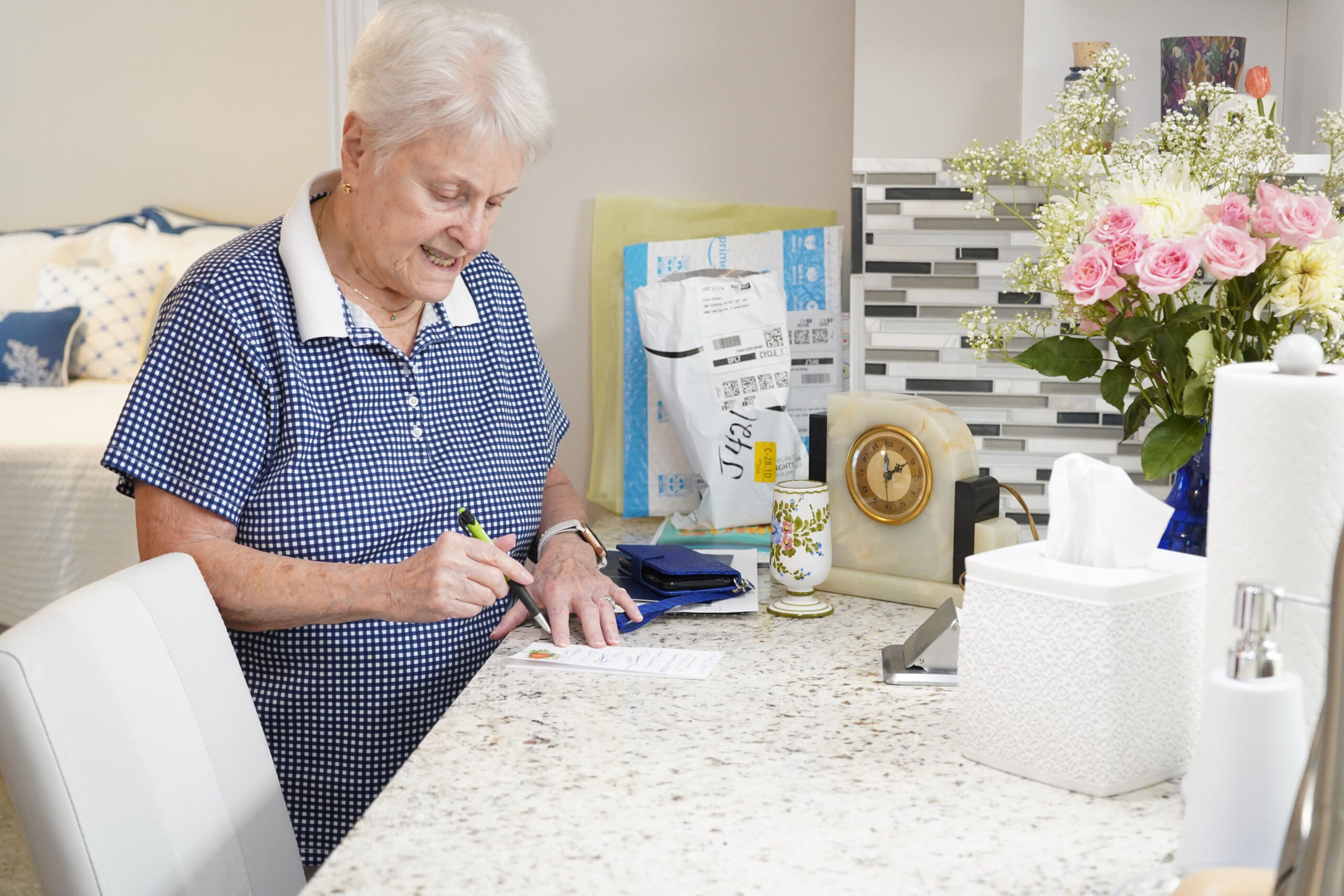If you’ve ever opened a closet in your parent’s house only to be greeted by stacks of newspapers from the 1990s, a collection of plastic bags “just in case,” or piles of sentimental trinkets, you’re not alone. Decades of life and memories often come with decades of stuff, and for many older adults, letting go of that stuff is no small feat. As their child, it’s tempting to avoid the mess—both physical and emotional—that comes with helping your parents declutter. But waiting only makes the process harder, especially after they’re no longer here to make those decisions themselves.
Here’s why you should start tackling this now, with some tips to make it easier for everyone.
THE “KEEPER” GENE: WHY LETTING GO FEELS IMPOSSIBLE:
Many older adults seem to have what some call the “keeper” gene—the tendency to hold onto items far longer than necessary. Perhaps it’s a Depression-era mindset passed down from their parents, or maybe it’s the sentimentality attached to objects that represent their lives and loved ones.
Your dad might see that broken coffee mug as a reminder of Saturday mornings when you were a child. Your mom might view her 50-year-old sewing machine as a symbol of the dresses she made for her daughters.
Understanding this emotional attachment is key to approaching the decluttering process with empathy. For many, it’s not about the items themselves but what they represent.
When you gently remind your parents that memories live in their hearts, not in objects, you can help them loosen their grip on “stuff.”
HOW SCAMMERS EXPLOIT CLUTTER AND SENTIMENTALITY:
Clutter doesn’t just take up space; it can also create vulnerabilities. Older adults often become targets of mail scams, and a cluttered home can be a breeding ground for fraudulent solicitations. Piles of unopened mail might include fake sweepstakes offers, donation requests from questionable charities, or shady subscription services.
Take the time to help your parents sort through their paperwork. As you clear the piles, shred outdated documents, and organize important files, you’ll not only reduce physical clutter but also protect them from predatory schemes. Talk to them about scams and set up safeguards like a “do not mail” list and automatic bill payments to minimize exposure.
It’s All Clutter #75 Beware of Phishing, Smishing, and Vishing: Protecting Your Identity is a great podcast recording to watch after reading. Thank you, Clutter Boss!
THE PAIN OF DECLUTTERING AFTER LOSS:
One of the hardest lessons adult children learn is the emotional toll of cleaning out a loved one’s home after they’ve passed. Every box, drawer, and shelf becomes a bittersweet treasure hunt, filled with reminders of your parents’ lives. The grief of loss is compounded by the overwhelming task of deciding what to keep, what to donate, and what to throw away.
The truth is, it’s far easier—and far kinder—to handle this process while your parents are still alive. This way, they can be part of the decision-making process, sharing stories about items they cherish and giving their blessing to let go of things they no longer need. Together, you can focus on keeping what truly matters, like family photos, heirlooms, and meaningful letters.
HOW TO START: A STEP-BY-STEP GUIDE:
Start Small
Pick one manageable area, like a single closet or the junk drawer. Starting small reduces overwhelm and gives everyone a sense of accomplishment.
Ask Questions with Empathy
Instead of saying, “Why do you need this old lamp?” ask, “Does this lamp still bring you joy, or would you like to pass it on to someone else who could use it?”
Create Categories
Sort items into four categories: Keep, Donate, Recycle, and Trash. Have boxes ready and clearly labeled.
Celebrate Progress
After each session, take a moment to celebrate the progress made. Acknowledge your parents’ effort and remind them how good it feels to have more space and less stress.
Set Boundaries for New Items
As you declutter, talk about the importance of not letting new items replace the old ones. Help them resist “free” giveaways or impulsive purchases.
Be Patient
Decluttering is an emotional process. There will be moments of resistance, frustration, and even tears. Approach these moments with understanding and reassurance.

THE GIFT OF A DECLUTTERED HOME:
Helping your parents declutter isn’t just about organizing their home; it’s about creating peace of mind. A simpler, more organized space is safer, less stressful, and easier to maintain. More importantly, it’s a gift that you’re giving both them and yourself—freeing everyone from the burden of “stuff” so you can focus on what really matters: spending quality time together.
Don’t wait until the clutter becomes a crisis. Start today, one box at a time, and watch as your parents’ home—and your relationship with them—transforms.
A safe haven is an organized haven, as organization is key for a senior to thrive wherever it is they call home.
PIN IT to remember it!
Here’s to helping your parents declutter!
💙,
Nicole
By: Nicole Ramer, CPO®, SMM~C® | Senior Home Coach™
(Certified Professional Organizer®, Certified Senior Move Manager®, and Chronic Disorganization Specialist®)
© 2024 Organized Haven. All rights reserved.



0 Comments